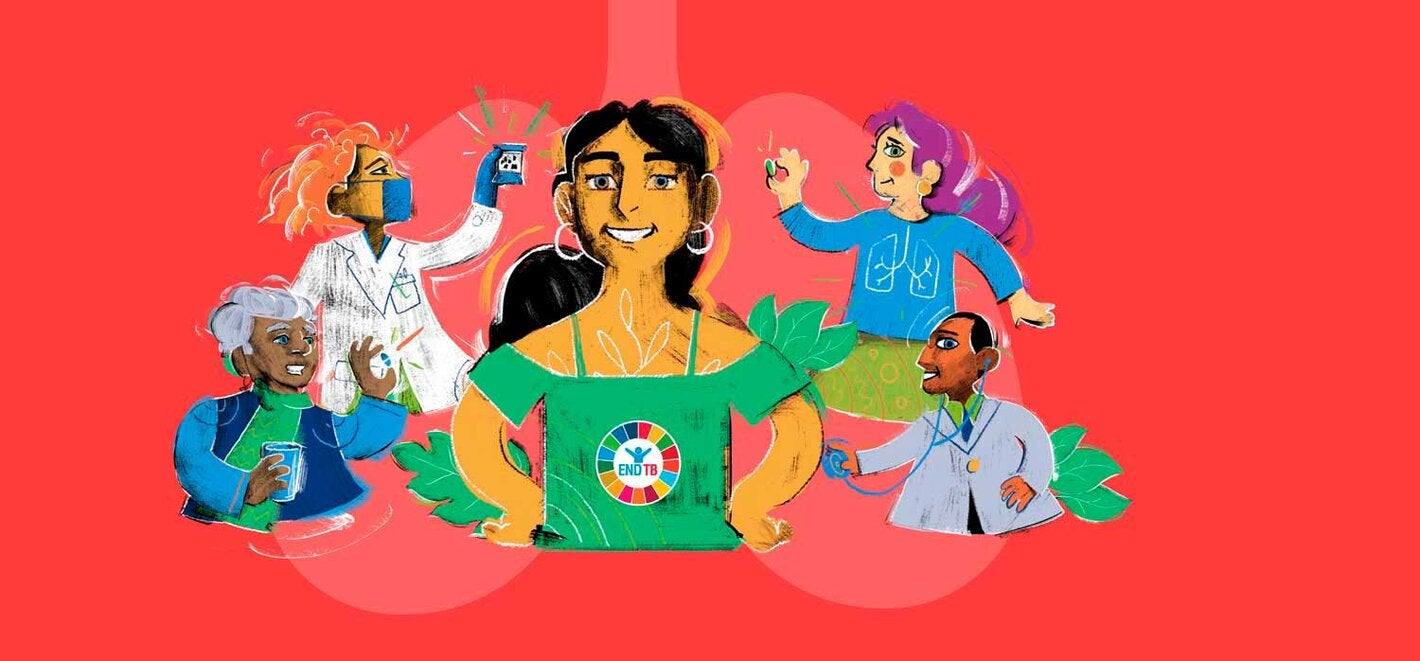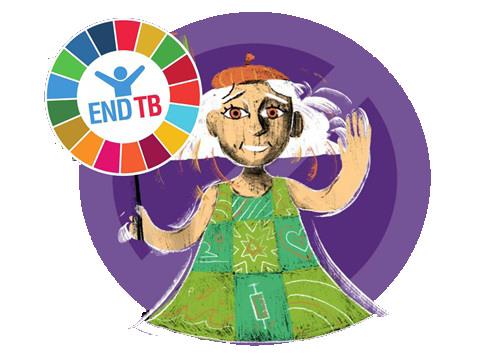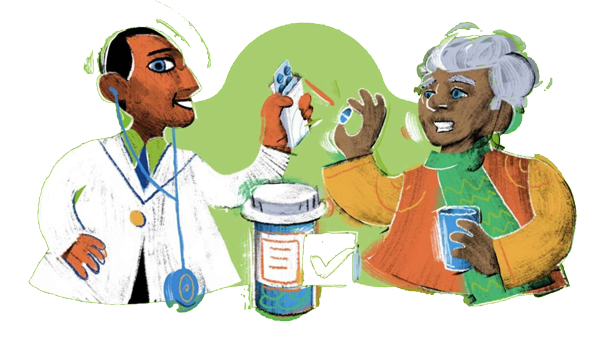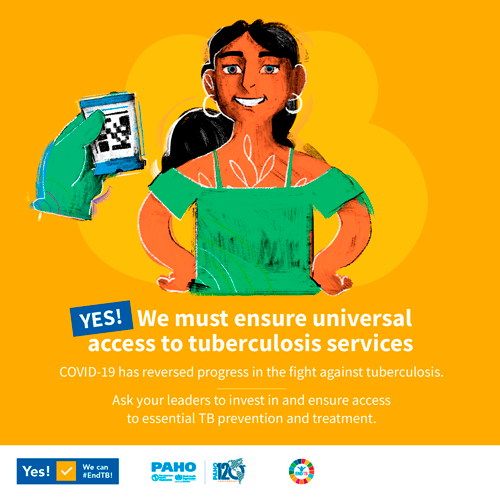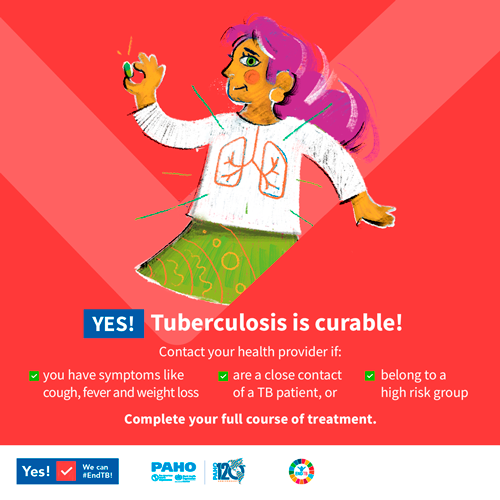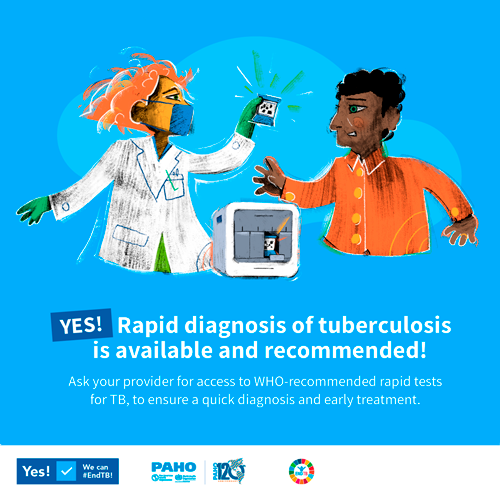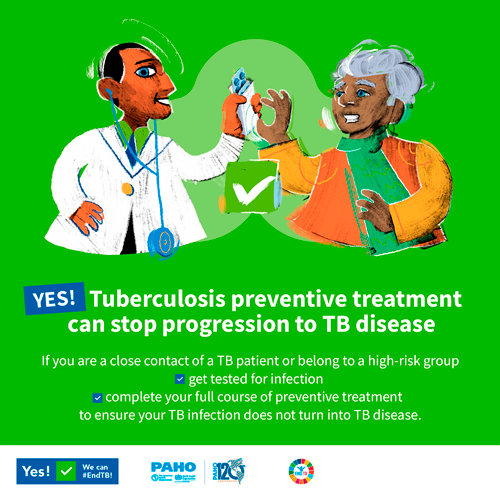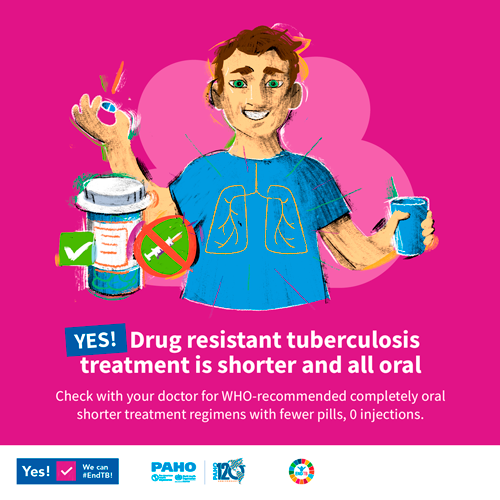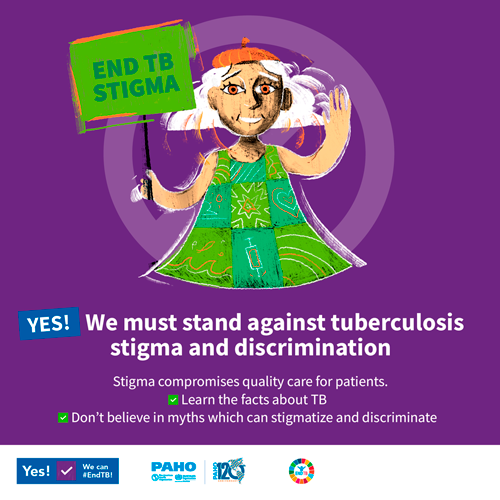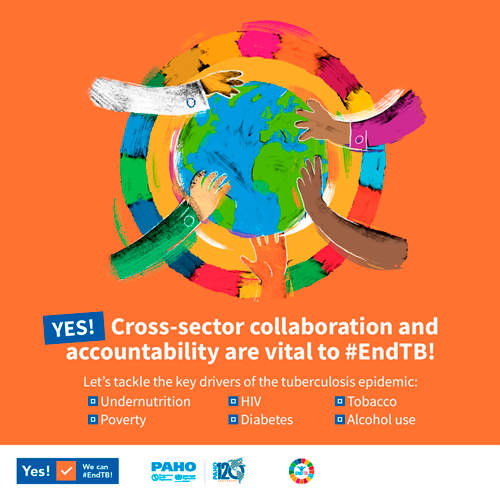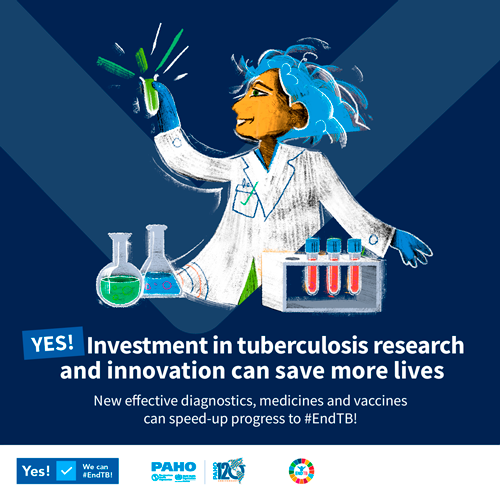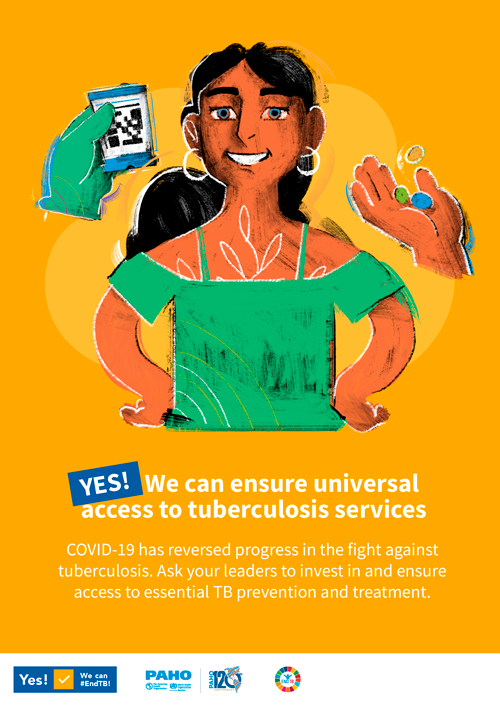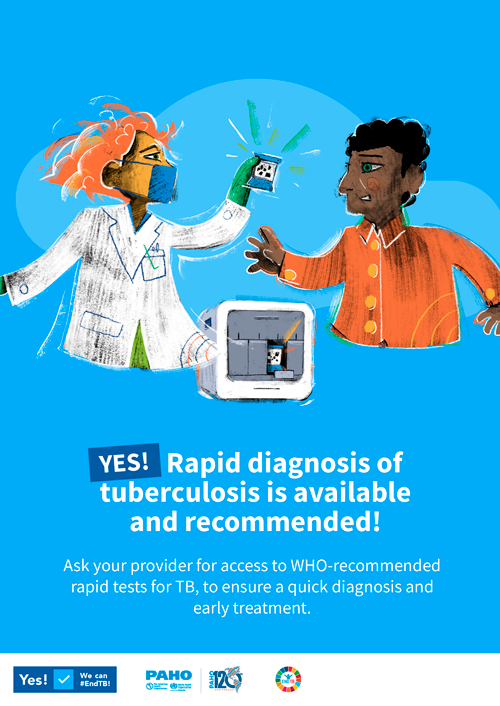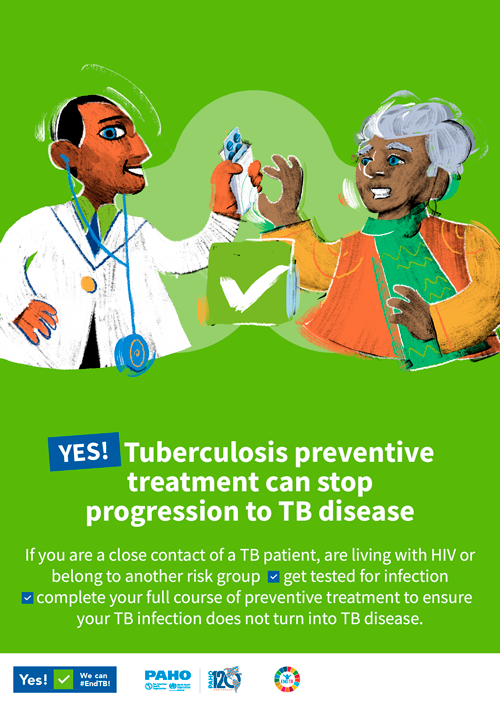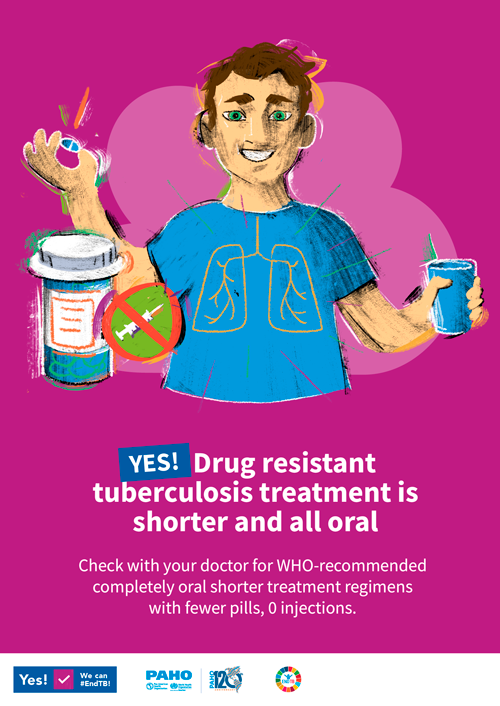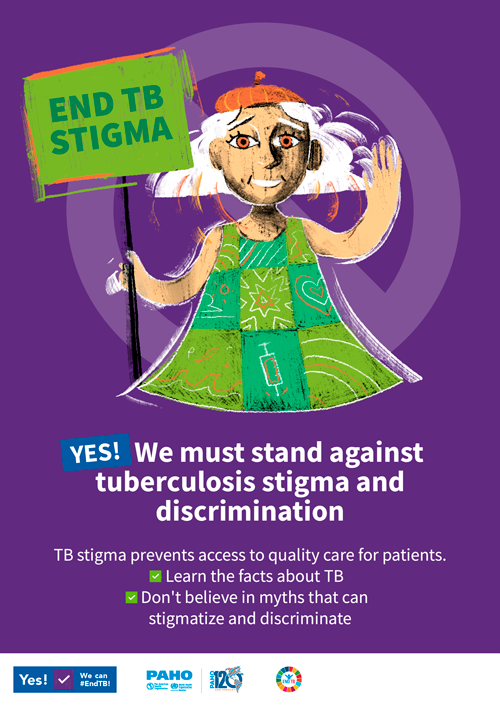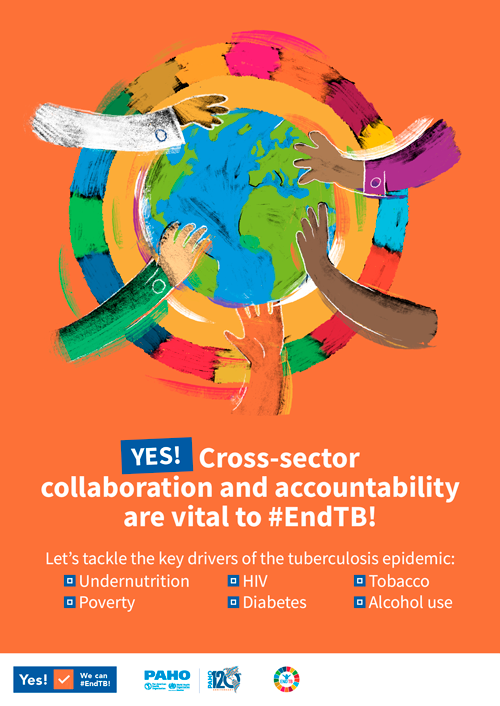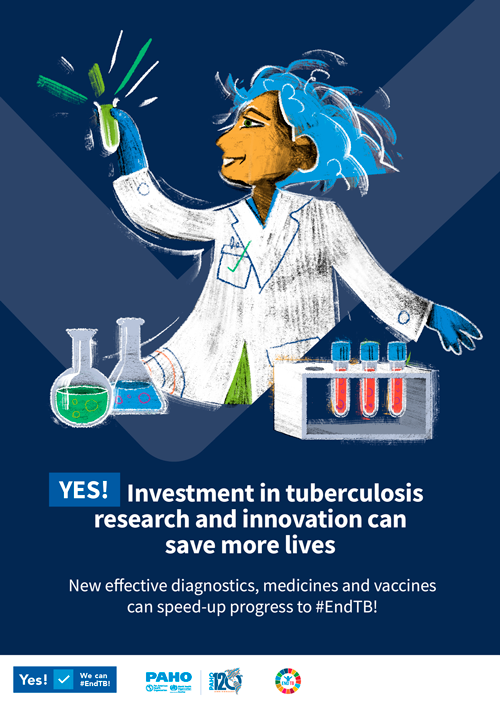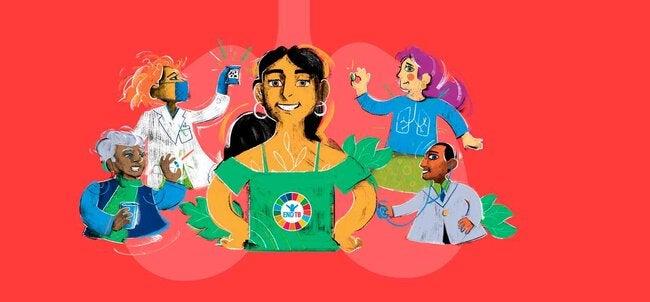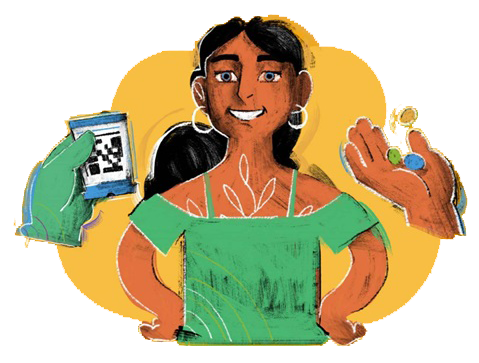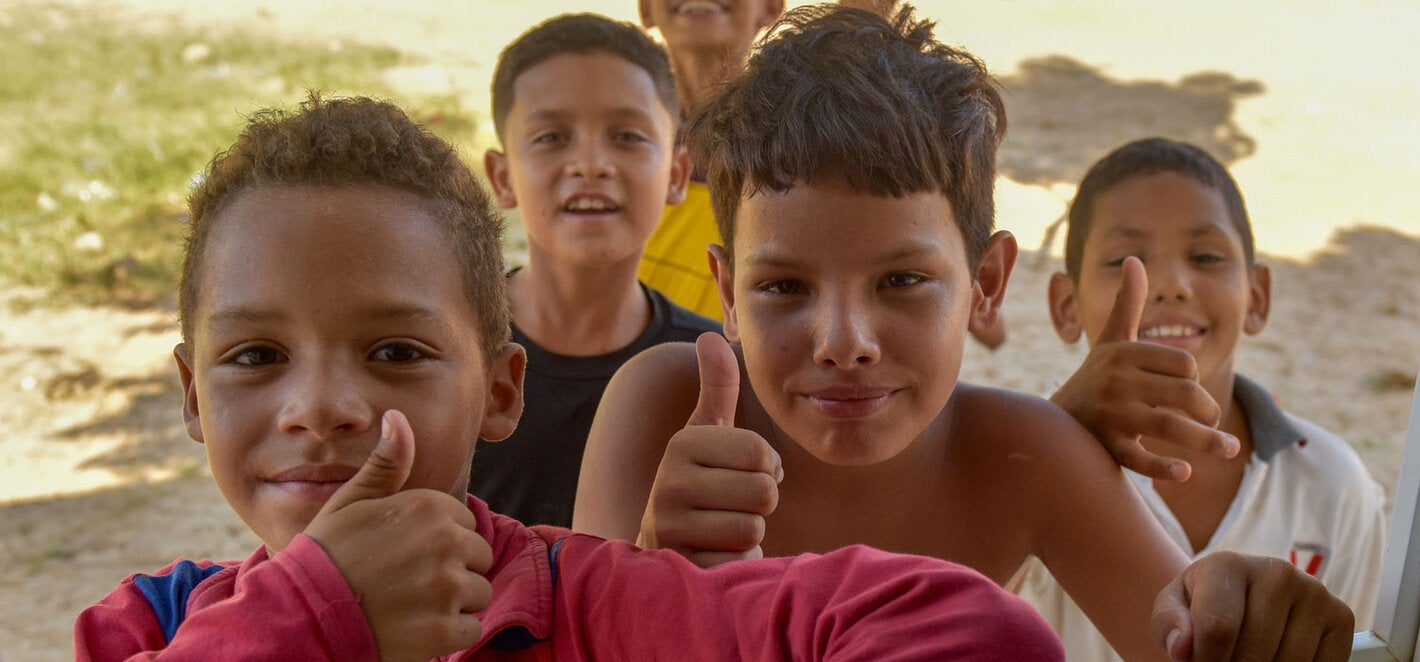Yes! We can end TB!
Each year, we commemorate World Tuberculosis (TB) Day on March 24 to raise public awareness about the devastating health, social and economic consequences of TB, and to step up efforts to end the global TB epidemic. The date marks the day in 1882 when Dr Robert Koch announced that he had discovered the bacterium that causes TB, which opened the way towards diagnosing and curing this disease. TB remains one of the world’s deadliest infectious killers. Each day, close to 4400 people lose their lives to TB and close to 30,000 people fall ill with this preventable and curable disease. Global efforts to combat TB have saved an estimated 74 million lives since the year 2000. However, the COVID-19 pandemic has reversed years of progress made in the fight to end TB.
World TB Day 2023, with the theme 'Yes! We can end TB!', aims to inspire hope and encourage high-level leadership, increased investments, faster uptake of new PAHO/WHO recommendations, adoption of innovations, accelerated action, and multisectoral collaboration to combat the TB epidemic. This year is critical, with opportunities to raise visibility and political commitment at the 2023 UN High-Level Meeting on TB. This year the spotlight of World TB Day will be on urging countries to ramp up progress in the lead-up to the 2023 UN High-Level Meeting on TB. PAHO/WHO will also issue a call to action with partners urging Member States to accelerate the rollout of the new WHO-recommended shorter all-oral treatment regimens for drug-resistant TB.
74 million lives saved
since 2000 by global efforts
to end TB
Every day,
in the Americas,
850 people
become ill with TB
Every day,
in the Americas,
about 90 people
die of TB
Social Media Postcards
Posters
KEY MESSAGES
2023: the year to shine a spotlight on ending TB and the suffering it causes to millions, and to call for comprehensive and universal care for those affected. The 2023 UN High-Level Meeting on TB at the General Assembly in September will bring together Heads of State, and provides the opportunity to mobilize political and social commitment to ramp up progress against these ancient diseases. It is our collective responsibility to confront inequalities and put an end to this preventable and curable disease.
The COVID-19 pandemic has drawn attention to the deep disparities that persist between and within countries. People with TB are among the most marginalized and vulnerable, facing barriers in accessing care. PAHO/WHO is calling for global action to address health inequities for people with TB and other diseases.
To provide the right services, support and enabling safe environment in the right place, at the right time. TB is mainly concentrated in settings beset by poverty and other social and economic challenges and in the most vulnerable populations. Poverty, undernourishment, poor living and working conditions, among others, affect how people fall ill, develop TB and cope with the demands of treatment (including medical, financial and social), and influence the health outcomes they face. Thus, progress in combating TB and its drivers cannot be achieved by the health system alone and requires firm political commitment at the highest level, strong multisectoral collaboration (beyond health), and an effective accountability system.
This is especially critical in the context of the COVID-19 pandemic, and ongoing conflict and socioeconomic crises, that has put End TB progress at risk, and to ensure equitable access to prevention and care in line with PAHO/WHO’s drive towards achieving Universal Health Coverage. More investments towards supporting the rollout of PAHO/WHO-recommended TB preventive treatment options, shorter TB treatment regimens, rapid molecular diagnostics and tests for TB infection, and other innovations and digital tools will lead to improvements in health outcomes and save millions of lives. Importantly, investments in research and innovation are vital to fast-track efforts to reach the end TB targets.
Event
Webinar - World TB Day: The Americas towards the UN High Level Meeting on TB 2023
Date: March 23rd, 2023 - 10:00 – 12:15 pm (Washington, D.C. time)

